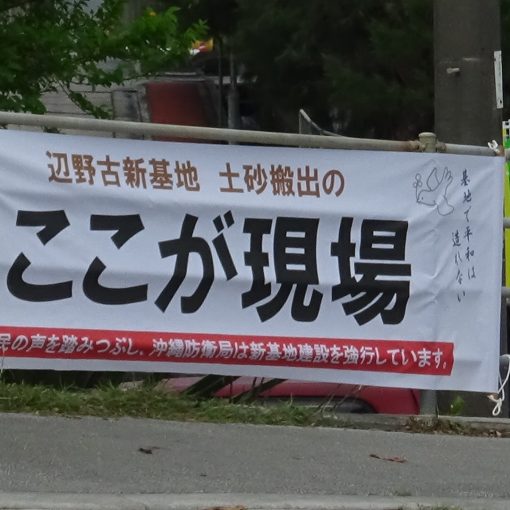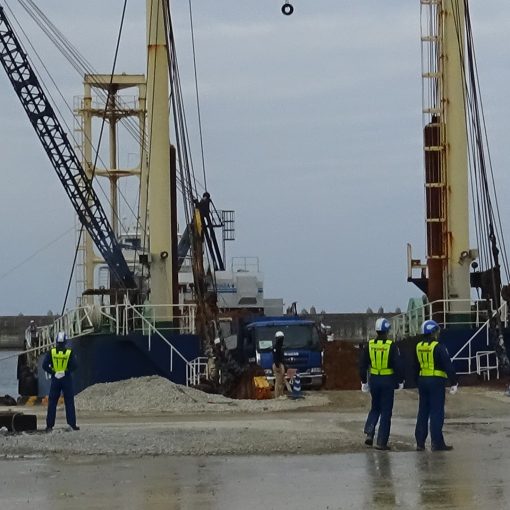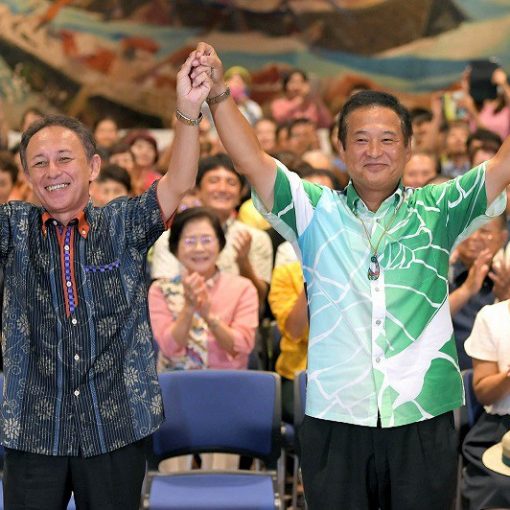August 29, 2020 Ryukyu Shimpo
Prime Minister Shinzo Abe has announced his resignation. He was prime minister for seven years and eight months, since the inauguration of his second administration in December 2012. As his health worsened, he determined that it would be difficult to continue at his post.
At his press conference, Abe emphasized that “politics is about getting results,” but despite his long term as prime minister, his prime policy goals remain markedly unachieved.
Regarding Okinawa, Abe always repeated that he would “stand with the Okinawan people.” However, his administration has stood with Okinawans less than any other when it comes to the base issues. We hope to see an end to politics where power in numbers is used to bulldoze forward at the insistence that “this is the only way,” and a return to a politics that honors the will of the people.
After the inauguration of his second administration, Abe pushed forward his economic policy of “Abenomics” in an attempt to end deflation. His goal was to reach a GDP of 600 trillion JPY, but this goal has not been achieved. He put off his initial aim to improve fiscal health and achieve a surplus in the primary balance by 2020. He did not achieve his goal of “making women shine” by increasing the rate of women in leadership roles to 30% by 2020. He also failed to resolve the issues around the Northern Territories and the abduction problem.
Abe achieved consecutive wins in national elections and built a “one strong Abe” system. In 2017, however, the LDP failed to achieve 50% of votes in the Lower House election small electoral districts, yet nonetheless won more than 70% of Diet seats. This was the result of distortion in the present small electoral district system.
Even so, Abe used the win to argue that the people had placed their trust in his administration, and passed legislation on national security, protection of specified secrets, and “crimes of conspiracy” with disregard to deeply rooted opposition by the people. The arrogance bred by Abe’s long reign showed itself in the Moritomo and Kake scandals and the suspicion of misappropriation of the “cherry blossom-viewing party” held by the prime minister.
Around 70% of facilities for exclusive use by the U.S. military in Japan are located in Okinawa, and crimes and accidents resulting from the U.S. military are incessant. Attending the Okinawa Memorial Day ceremony by video call on June 23 of this year, the prime minister stated, “I am determined to achieve sure results toward reducing the base burden.” Meanwhile, he bulldozed forward with the new base construction in Henoko, Nago as part of the relocation of U.S. Marine Corps Air Station Futenma, asserting it was the “only solution.” He made no effort to negotiate with the U.S. to find a solution other than Henoko.
Abe increased and decreased the Okinawa-related budget depending on the position of the Okinawa prefectural administration on the U.S. base issues. He set up a new “Okinawa promotion special project advancement budget” which was directly negotiated by the national government with city and town mayors without going through the prefectural government, breeding local division. These policies embodied a “carrot and stick” approach.
In relation to the Henoko issue, in December of last year, a revised draft plan was announced that put the total construction cost at roughly 930 billion JPY, 2.7 times the originally planned cost, in order to address the weak sea floor 70 meters below the sea surface in the land reclamation zone. Nonetheless, prospects of completing the project are slim, from both a technological and a fiscal standpoint.
Prime Minister Eisaku Sato, who was Prime Minister Abe’s great uncle, declared to Chobyo Yara, the Chief Executive of the Government of the Ryukyu Islands, “we will not force Okinawa to bear the mainland’s burden (of bases)” (1971). Yet this promise remains unfulfilled today.
The Abe administration ignored the will of Okinawans against the new base construction in Henoko even as it was demonstrated in national elections, gubernatorial elections, and a prefectural referendum. His administration will surely go down in history as one that had no qualms making a farce of democracy and forcing the burden of U.S. bases onto a minority of citizens.
(English translation by T&CT and Sandi Aritza)





